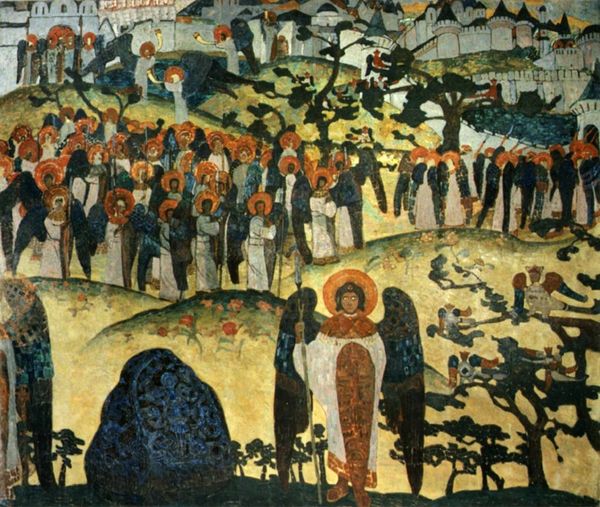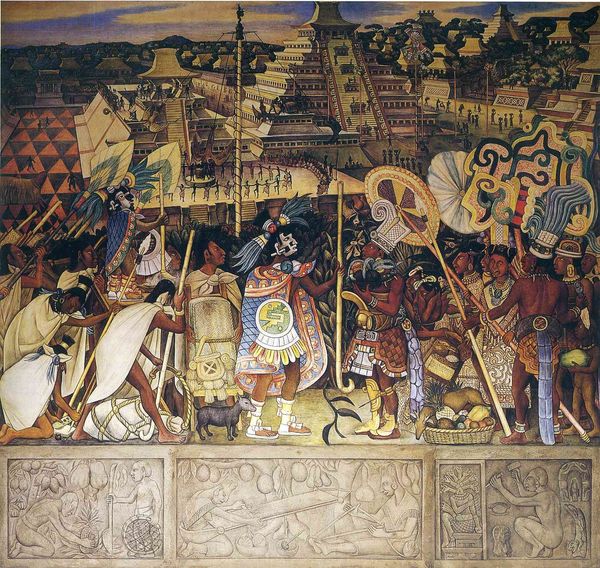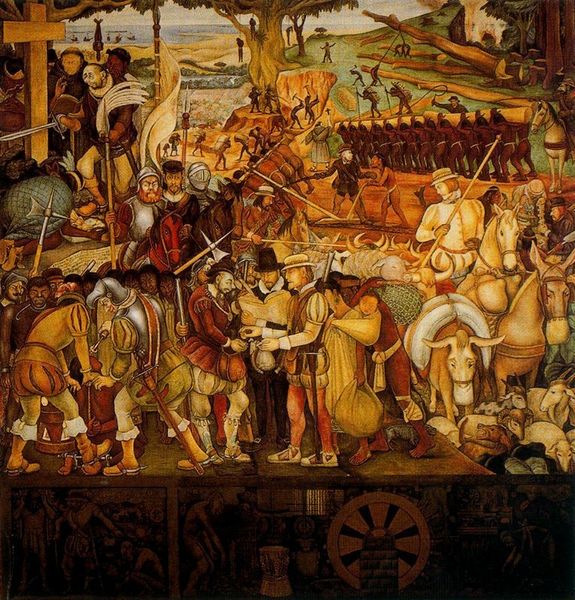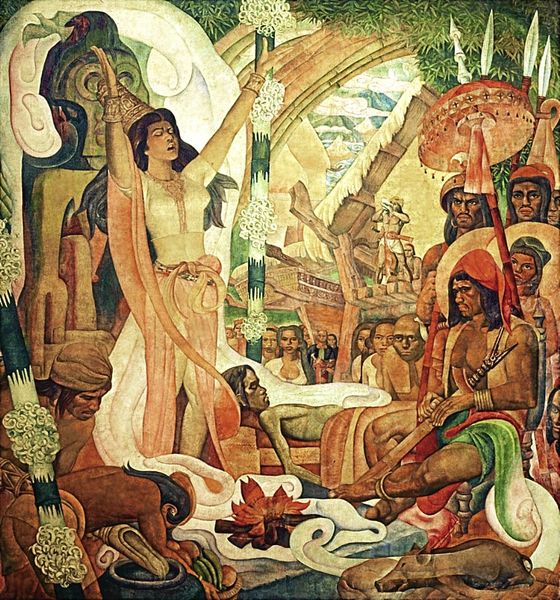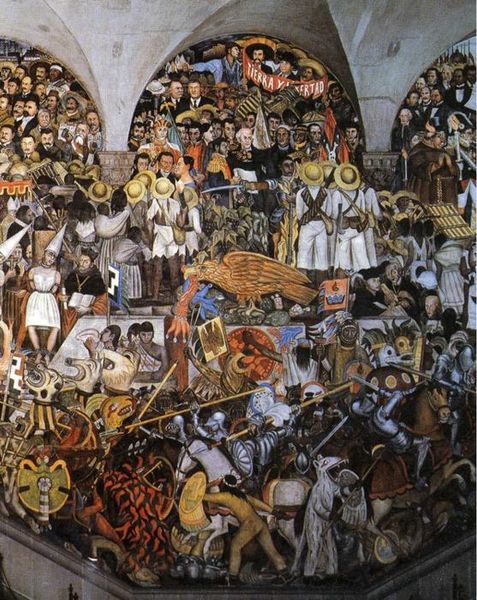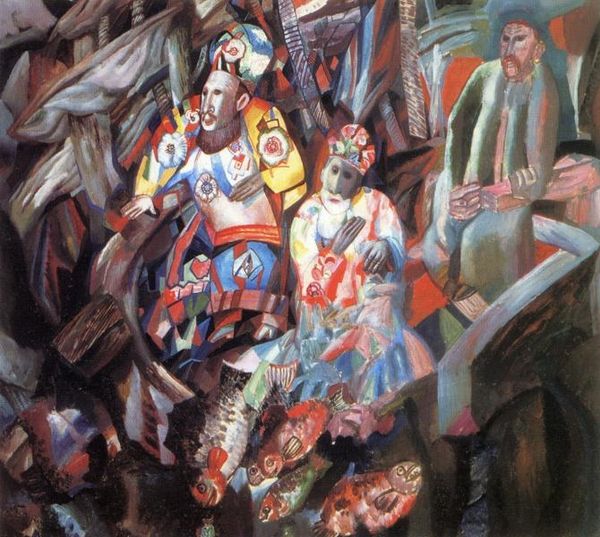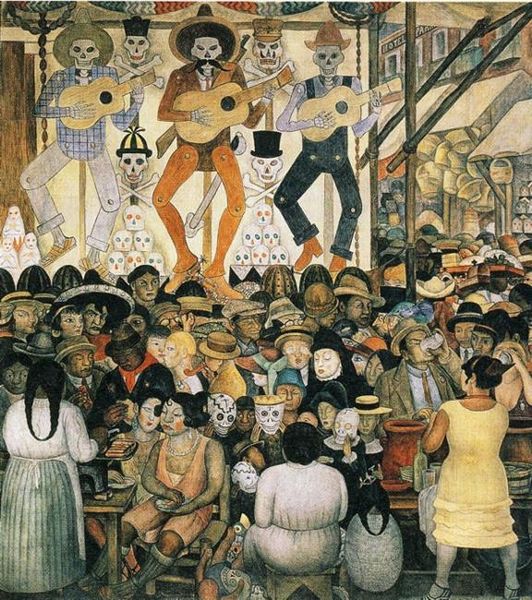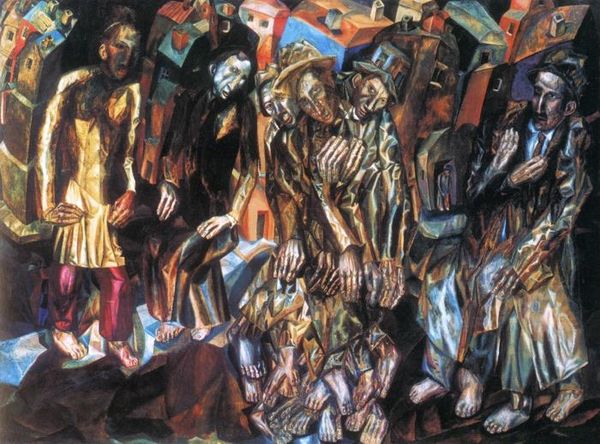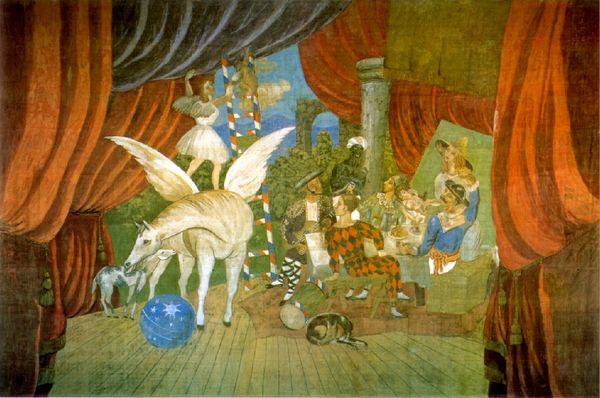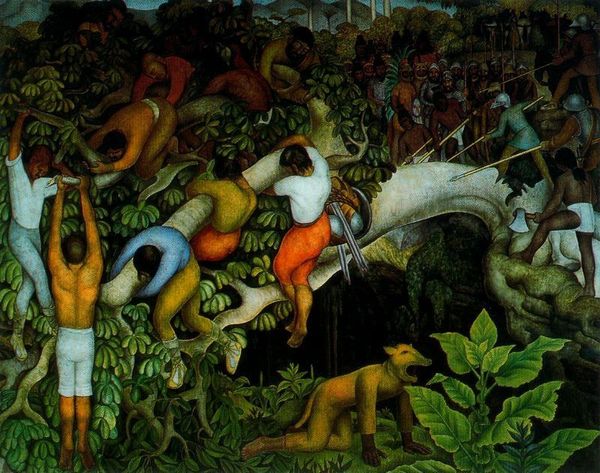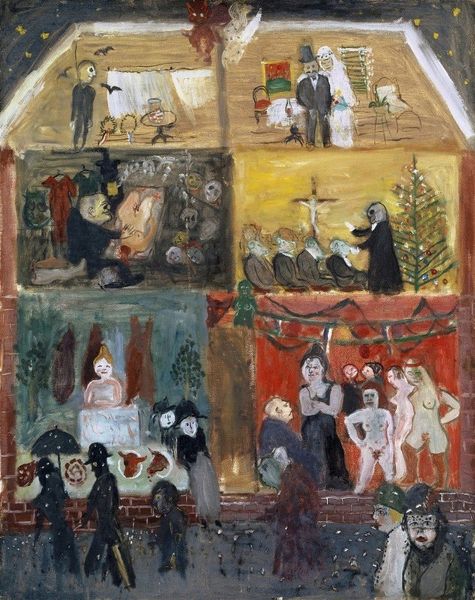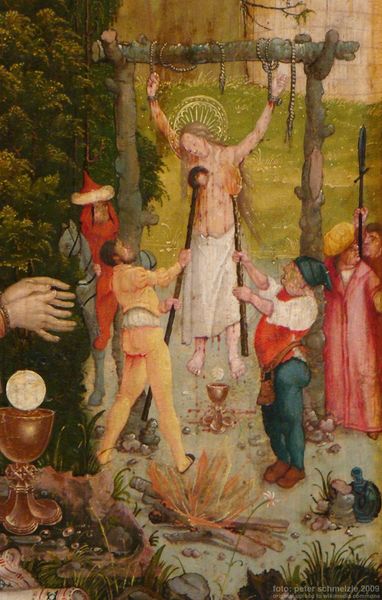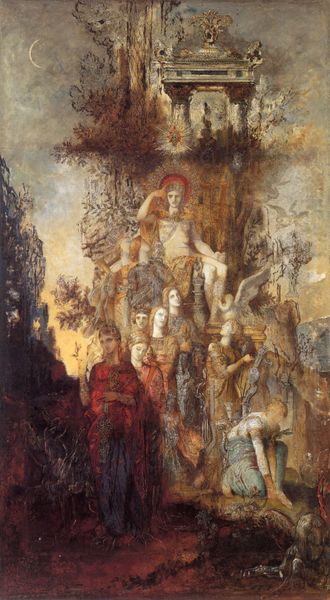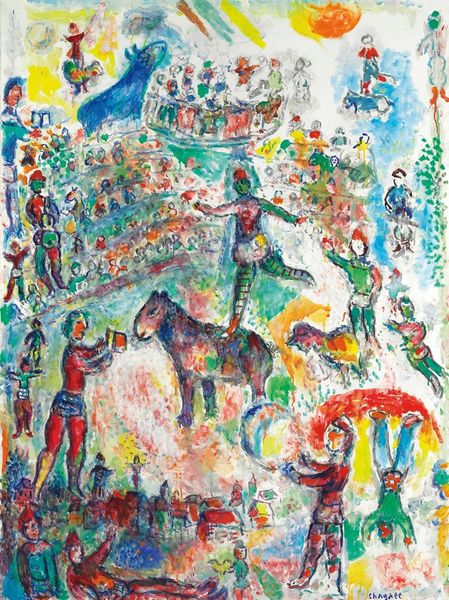
painting, oil-paint
#
narrative-art
#
painting
#
oil-paint
#
landscape
#
indigenism
#
figuration
#
social-realism
#
oil painting
Dimensions: 456 x 356 cm
Copyright: Diego Rivera,Fair Use
Editor: Diego Rivera’s “Good Friday on the Santa Anita Canal," painted in 1924, is a fascinating scene rendered in oil. I am immediately struck by the sheer density of the figures and how they’re packed into this pictorial space. How would you interpret the cultural and historical context of a work like this? Curator: It’s crucial to remember Rivera’s position within the post-revolutionary Mexican art scene. Muralism was, in many ways, a state-sponsored art form meant to communicate socialist ideals and a national identity to a largely illiterate public. This painting, though smaller in scale than his murals, shares that impulse. We see the blend of Indigenous traditions and Catholic practices; Good Friday isn't just a religious observance here, it’s fused with existing Indigenous belief systems, evidenced by the presence of the calla lilies. Doesn't it suggest something of a political statement, about national identity? Editor: That’s an interesting point! The calla lilies seem very intentionally placed, especially in the foreground. I see a kind of synthesis, as you say, and also, the suggestion of idealizing and romanticizing the image of everyday people. How does the patronage system influence these images? Curator: The state, the intellectuals, the public, the global artistic movements--all feed into Rivera's creative decisions. While many works promoted populist sentiment and celebrated Mexicanidad, we have to ask: whose interests are truly being served? Is it a genuine reflection of the people, or a carefully constructed image designed to unify a nation? How "real" is social realism? Editor: I suppose it’s both. This has certainly offered a much deeper and needed sociopolitical understanding for how to look at Rivera’s works in general. Thank you! Curator: Indeed! The politics of imagery are never simple. I learned from this dialogue as well.
Comments
No comments
Be the first to comment and join the conversation on the ultimate creative platform.
